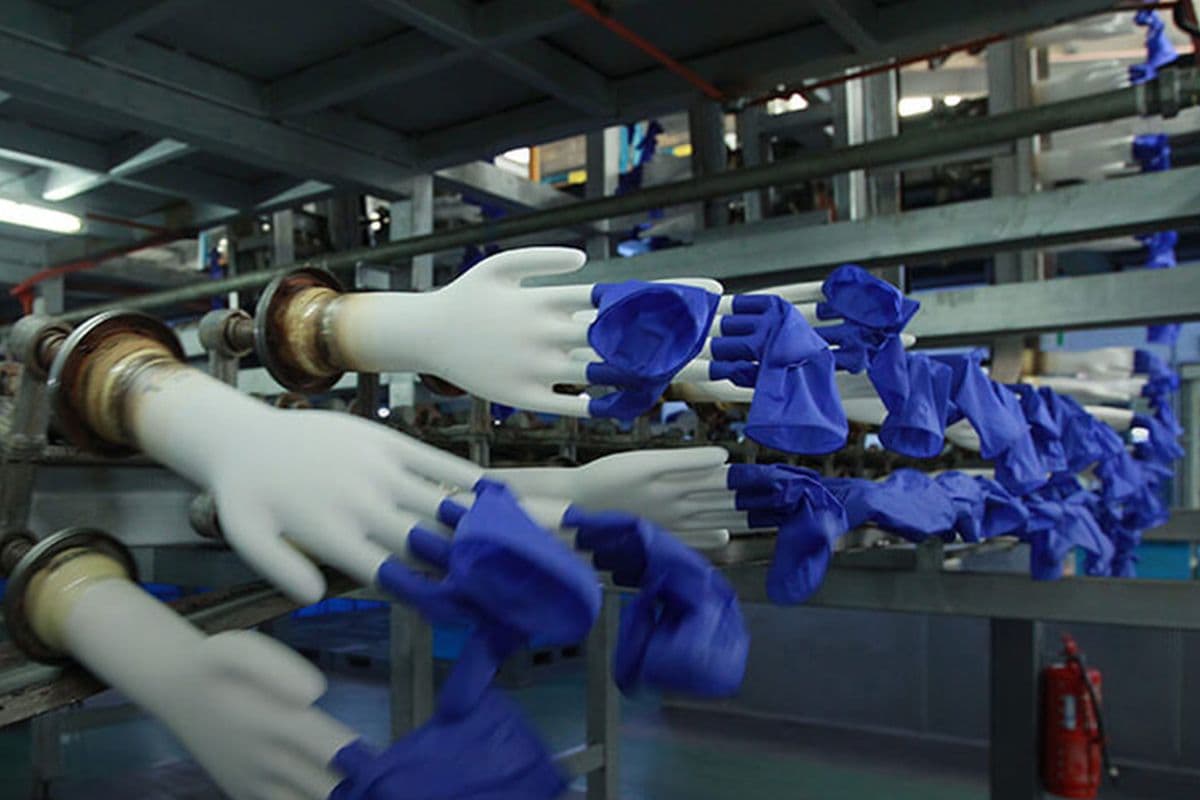
KUALA LUMPUR (Nov 17): JP Morgan which has been bearish on the glove sector since last year, has once again slashed its target price (TP) for Top Glove Corp Bhd to RM1.50 — a 67.33% discount from its current price of RM2.51 — while maintaining an “underweight” rating.
In a note, JP Morgan said the market is underestimating the potential impact of the bottoming gloves average selling price (ASP) and the shift in pricing power back to the buyers.
The note also covered Hartalega Holdings Bhd and Kossan Rubber Industries Bhd. JP Morgan gave an “underweight” rating and a fair value of RM4.00 to Hartalega, 36.25% lower than its current price of RM5.45 while Kossan’s rating was “neutral” and its fair value is pegged at RM2.00, down 3.5% from its current price of RM2.07.
Notably, these TPs are similar to the glove makers’ share prices before the global Covid-19 outbreak.
JP Morgan analysts Jeffrey Ng and Sean Teo said the operating margin per unit (OPM) from the latest results briefings from the Malaysian glove makers might fall below pre-Covid-19 levels despite earlier estimates forecasting a better-than-pre-Covid-19 OPM.
“The industry is still finding [its] bottom. Note that glove ASP has dropped from US$115 in Feb-21 to today’s US$28-$30. It is now clear that glove ASP has reverted to a cost-plus basis. Channel checks indicate that current OPM is already nearing pre-Covid-19 margins. But the main question is will margins compress below pre-Covid-19 levels due to intensified competition from China? The risks are tilted toward the downside and the market, in our view, has not fully discounted this risk,” the analysts wrote.
They also cut the OPM assumptions by 20%-30% similar to pre-Covid-19 margins of US$2.4-5 and said that the glove makers will see a mean reversion and trade at their respective historical trading ranges of 13-18 times earnings unless a price war happens.
JP Morgan noted that Kossan’s modest expansion plans and its net cash as of September 2021 stood at RM2.4 billion which makes up 38% of its market capitalisation and is expected to improve to 39% in FY22.
Top Glove and Hartalega, however, have a latest quarterly net cash of 3% and 22% respectively against their market capitalisation of RM20.6 billion and RM18.37 billion.
The analysts cautioned that ambitious expansion plans would limit the future growth of the glove makers’ net cash position.
Meanwhile, JP Morgan said Malaysian glove makers’ best days are over as Covid-19 testing — which drove demand for rubber gloves and caused supply tightness — has peaked and glove demand and prices will decelerate and normalize thereafter.
In particular, the analyst believes that Top Glove and Hartalega’s balance sheet management is suboptimal for creating shareholder value due to the persistence in dividend payouts and funding their increasing capex for more production capacity with equity which has a higher cost compared to debt.
“Despite the strong cash flow generation, the company has maintained its dividend payout at 50%, but plans to increase capex to 4x its historical average. Utilizing equity at a cost of 7.7% vs the cost of debt of <5% in funding capex, in our view, is not optimal for shareholder value creation,” the analysts wrote of Top Glove.
Top Glove’s peer Hartalega had also said that it will increase its capex by 2.3 times in the next three years, compared with its financial year ended March 31, 2017 (FY17) to FY19.
“We believe Hartalega could unlock more value if it utilizes its debt to fund its capex as its cost of equity of 7.8% is higher than its cost of debt of 2.5%. However, Hartalega has stated it will maintain its 60% dividend payout despite the supernormal cycle and deploy cash instead of tapping debt to fund its capex,” the analysts said.
Kossan, on the other hand, has a fairly muted capex despite a strong cash generation during the glove supercycle. As it has been trading at a discount to its peers due to its smaller size and lower margins and is no longer in large funds’ top-10 holdings according to JP Morgan’s proprietary domestic fund fact sheet analysis.
JP Morgan also outlined risks to its bearish sector call which includes a sharp cut in planned capacity expansion which reduces price competition risk, and unexpected changes in nitrile and natural rubber prices which could uplift glove prices from their current lows.
Further challenges to its sector call would be a consistent step-up in dividend payout and balance sheet management, a substantial depreciation of the ringgit that would improve profits as gloves are sold in US dollar terms.
The exit of new entrants cutting oversupply risk and unforeseeable factors driving a valuation re-rating could also see glove makers’ prices move upwards too, the analysts said.






